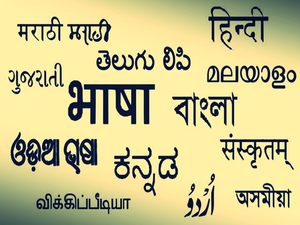Classical Languages Recognized: New Employment Opportunities Emerge in Archiving, Research, and Digital Media
Union Cabinet Grants Classical Language Status to Marathi, Pali, Prakrit, Assamese, and Bengali, Boosting Job Creation in Cultural and Academic Sectors
Empowering employment: The role of classical languages in job creation
New Delhi, Oct 4: The Union Cabinet, chaired by Prime Minister Narendra Modi, has approved the designation of Classical Language status for Marathi, Pali, Prakrit, Assamese, and Bengali.
These languages join six others that have already been given the status of classical language. These already recognised languages are Tamil, Sanskrit, Telugu, Kannada, Malayalam, and Odia. The primary states impacted by this decision include Maharashtra (Marathi), Bihar, Uttar Pradesh, and Madhya Pradesh (Pali and Prakrit), West Bengal (Bengali), and Assam (Assamese). The cultural and academic implications of this recognition will resonate both nationally and internationally.
To support these Classical Languages, the Ministry of Education will provide benefits such as National Awards for Classical Languages, the establishment of Chairs in universities, and the creation of Centres dedicated to the promotion of these languages. The major benefit of conferring classical language status to these tongues also includes employment generation. The inclusion of languages as Classical Language will create significant employment opportunities, particularly in academic and research fields.
Moreover, the preservation, documentation, and digitisation of ancient texts of these languages will generate jobs in archiving, translation, publishing, and digital media. The Ministry of Education has taken various steps to promote Classical Languages. Three Central Universities were established in 2020 through an Act of Parliament for the promotion of the Sanskrit language.
The Central Institute of Classical Tamil was set up to facilitate the translation of ancient Tamil texts, promote research and offer courses for university students and language scholars of Tamil. To further enhance the study and preservation of Classical Languages, the Centres for Excellence for studies in Classical Kannada, Telugu, Malayalam, and Odia were established under the auspices of the Central Institute of Indian Languages in Mysuru. In addition to these initiatives, several national and international awards have been instituted to recognise and encourage achievements in the field of Classical Languages.



